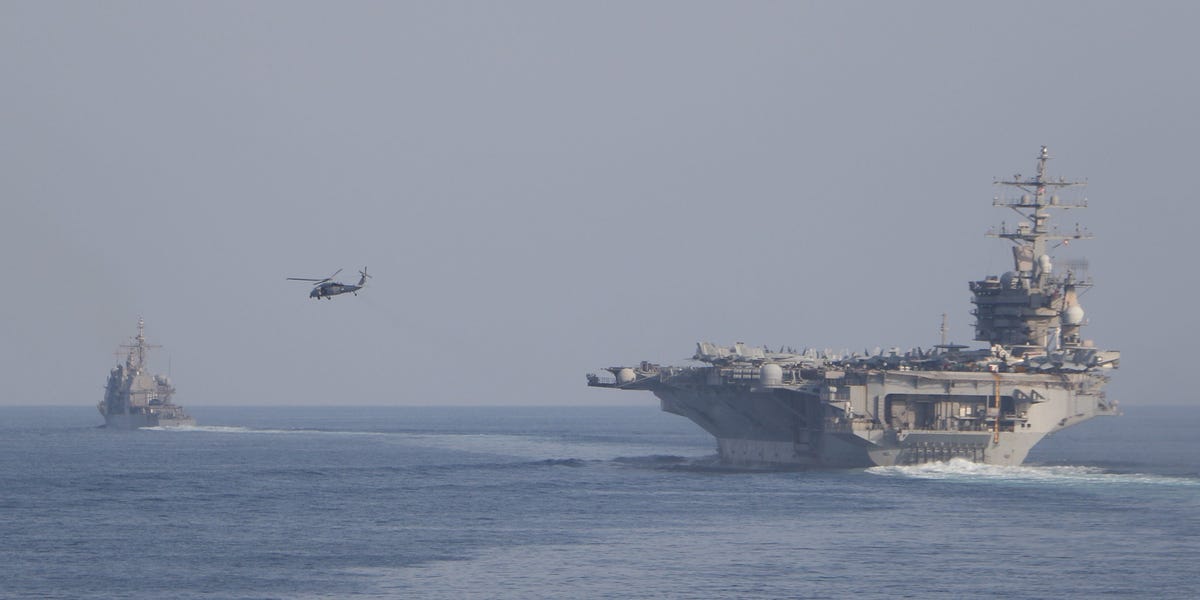- Houthi rebels are threatening US warships and shipping using naval drones, a new report said.
- The commander of a US Navy carrier strike group says these weapons are among the more frightening.
- The use of cheap sea drones has been pioneered, to considerable success, by Ukraine.



The carriers are designed to survive actual torpedos.( Mk 48 wahead: 650 lbs of military explosives)
It would take many drones to breech.
And yes, the capital acquisition cycle is multi decade but the upgrade programs are more responsive.
These threats are not unlike previously seen threats.
That’s a fair stance to take. Its not one I agree with, but its a fine stance. We are seeing vessels being lost, vessels from a roughly equivalent scale nation state, with at least on paper a roughly equivalent development program, not to 6 million dollar, but to much much cheaper and easier to deploy equipment. I’m not saying its a coffin nail to traditional approaches to these kinds of programs, but at least in one case, the only one we have data for, asymmetry seems to be working.
We have seen the Russian army training and discipline was not up to par, im doubting their navy was much better. Also, many attacks were litoral or in base where better escort capabilities are always key.
This is the debut of drones in a sustained “real war” scenario. They are effective but new, the pendulum of innovation will swing back soon.
Capital assets will need more space to operate freely, so tactics will evolve to safely creep the line forward. Stand off weapons and guidance systems behind fences.
Machine guns, water cannons, microwave/laser attacks, counter drone drones, nets, etc. will all get reinvented and integrated every year.
Its just a matter of program structures, a (more) graduated arsenal of systems, and enough battlefield communication.
https://www.washingtontimes.com/news/2024/feb/13/running-tab-us-clash-with-houthis-costs-taxpayers-/
Hey look, I d the Washington times making my exact point for me today.